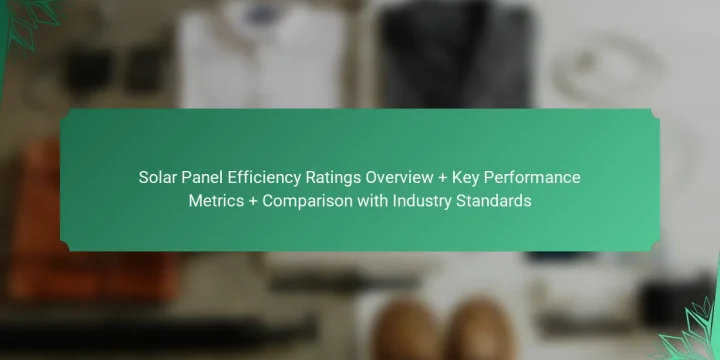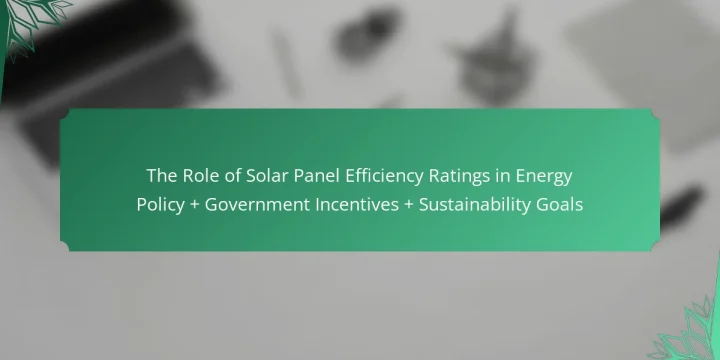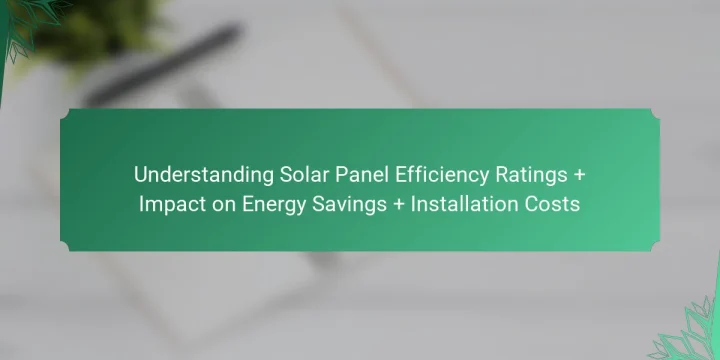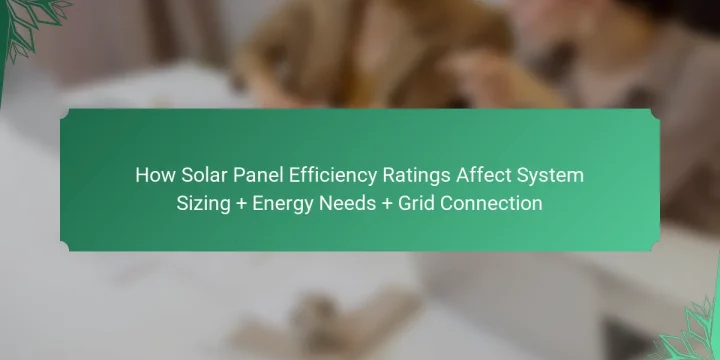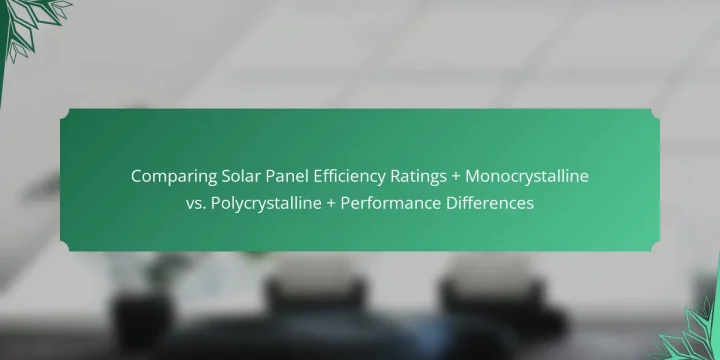
What are Solar Panel Efficiency Ratings? Solar panel efficiency ratings measure how effectively a solar panel converts sunlight into usable electricity. These ratings are typically expressed as a percentage. Higher efficiency ratings indicate that a panel can produce more electricity from the same amount of sunlight. Most modern solar panels have efficiency ratings between 15% and 22%. Monocrystalline panels usually have higher efficiency ratings compared to polycrystalline panels. For example, the highest-rated monocrystalline panels can exceed 22% efficiency. This efficiency is crucial for maximizing energy production in limited spaces. How are solar panel efficiency ratings determined? Solar panel efficiency ratings are determined by measuring the amount of sunlight converted into usable electricity. This is typically expressed as a percentage. The testing process is standardized by organizations like the International Electrotechnical…


